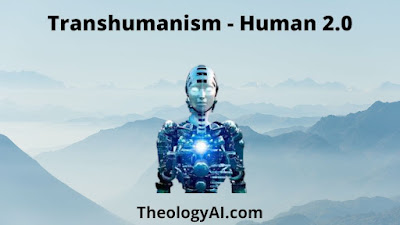The knowledge of God or omniscience is a mental attribute that refers to the ability to know everything. Grudem in Systematic Theology has described that as “God fully knows himself and all things actual and possible in one single and eternal act.”[1]
According to Don Hoffman in The Divine Attributes: Exploring the Philosophy of Religion, “it is the sort of knowledge that a maximally great being would possess.”[2] The quality of knowing everything is called “omniscience.” Since God is all-knowing, he is omniscient. Though God is infinite or unlimited, he knows himself fully. God possesses infinite intelligence. According to David Clark in To Know and Love God,
God's knowledge is what God rightly believes as true. God is omniscient; he possesses infinite intelligence. God's knowledge— his grasp of the way things are— is fully adequate, both extensively and intensively. He comprehensively knows all facts, and his grasp of them constitutes a conceptual framework that is as complex as reality itself. God's exhaustive knowledge represents the fullest possible grasp of truth.[3]
The Bible states that only the Spirit of God can comprehend
the thoughts of God. Humans can only understand the things freely given by God
through his Spirit to understand.
These things God has revealed to us through the Spirit. For the Spirit searches everything, even the depths of God. For who knows a person's thoughts except the spirit of that person, which is in him? So also no one comprehends the thoughts of God except the Spirit of God. Now we have received not the spirit of the world, but the Spirit who is from God, that we might understand the things freely given us by God. (1 Cor. 2:10-12)
God knows all things that exist and all things that will
happen. God’s knowledge also makes him know all things possible. The universe
God created is very complex, and humanity is still trying to figure out the
details. The knowledge of humans about the universe has increased with
advancements in science and technology, but that has also left humankind with more
questions. There are many possibilities within the creation, and only God knows
all those possibilities. God himself says that as the heavens are higher than the
earth, so are his ways and thoughts higher than human ways (Isa. 55:9).
Nothing is hidden from God, and he knows every tiny detail
of a person. Jesus said that God knows the needs of a person even before they
ask him (Matt. 10:30). David, when reflecting on the knowledge of God, thinks
that He knows human thoughts and actions.
O Lord, you have searched me and known me! You know when I sit down and when I rise up; you discern my thoughts from afar. You search out my path and my lying down and are acquainted with all my ways. Even before a word is on my tongue, behold, O Lord, you know it altogether. For you formed my inward parts; you knitted me together in my mother's womb. I praise you, for I am fearfully and wonderfully made. Wonderful are your works; my soul knows it very well.
My frame was not hidden from you, when I was being made in secret, intricately woven in the depths of the earth. Your eyes saw my unformed substance;
in your book were written, every one of them, the days that were formed for me, when as yet there was none of them. (Ps. 139:1-4;13-16)
In order to challenge the full knowledge of God, some objections are raised, pointing to the places where God says he will not remember the sins of people (Isa. 43:25). According to Grudem, “this does not mean that there is a limit to the knowledge of God. This means that God will not let the knowledge of our sins play any part in the way he relates to us.”[4] God still knows a person’s past and the sin committed. Forgiveness of sin by God does not erase the sin from God’s memory, or this does not mean God has no way to know that anymore. God will not hold that against a person anymore. So, this argument does not limit or challenge the knowledge of God.
Human knowledge is limited when compared to God’s knowledge.
As children grow, they gain knowledge through education and experiences. The
knowledge gained is limited. Modern technology has augmented or added knowledge
in humans with the availability of data on the internet, which can be easily
accessed. According to Bernard Marr, “The amount of data we produce every day
is truly mind-boggling. There are 2.5 quintillion bytes of data created each
day at our current pace, but that pace is only accelerating with the growth of
the Internet of Things (IoT). Over the last two years alone, 90 percent of the
data in the world was generated.”[5] Anyone can access these
details by simply searching on a search engine, but this is limited to what has
already been known to humans and made available on the internet. Hence the
knowledge of humans cannot be compared to that of God. AI is based on
information that is already made available and does not gain or generate any
new knowledge. AI can process data and do calculations faster and predict
outcomes based on historical data. These capabilities of AI cannot be compared
to the knowledge of the creator God.
[1] Grudem, Systematic
Theology: An Introduction to Biblical Doctrine, 190.
[2] Joshua
Hoffman and Gary S. Rosenkrantz, The Divine Attribute: Exploring the
Philosophy of Religion (Malden, MA: Blackwell, 2002), 111.
[3] David
K. Clark, To Know and Love God: Method for Theology (Wheaton, Ill.:
Crossway Books, 2003), 355.
[4] Grudem,
Systematic Theology: An Introduction to
Biblical Doctrine, 192.
[5] Bernard
Marr, “How Much Data Do We Create Every Day? The Mind-Blowing Stats Everyone Should
Read” Forbes, accessed January 5,
2020,
https://www.forbes.com/sites/bernardmarr/2018/05/21/how-much-data-do-we-create-every-day-the-mind-blowing-stats-everyone-should-read/#f8e152460ba9.
%20Image.jpg)

.jpg)


.png)

